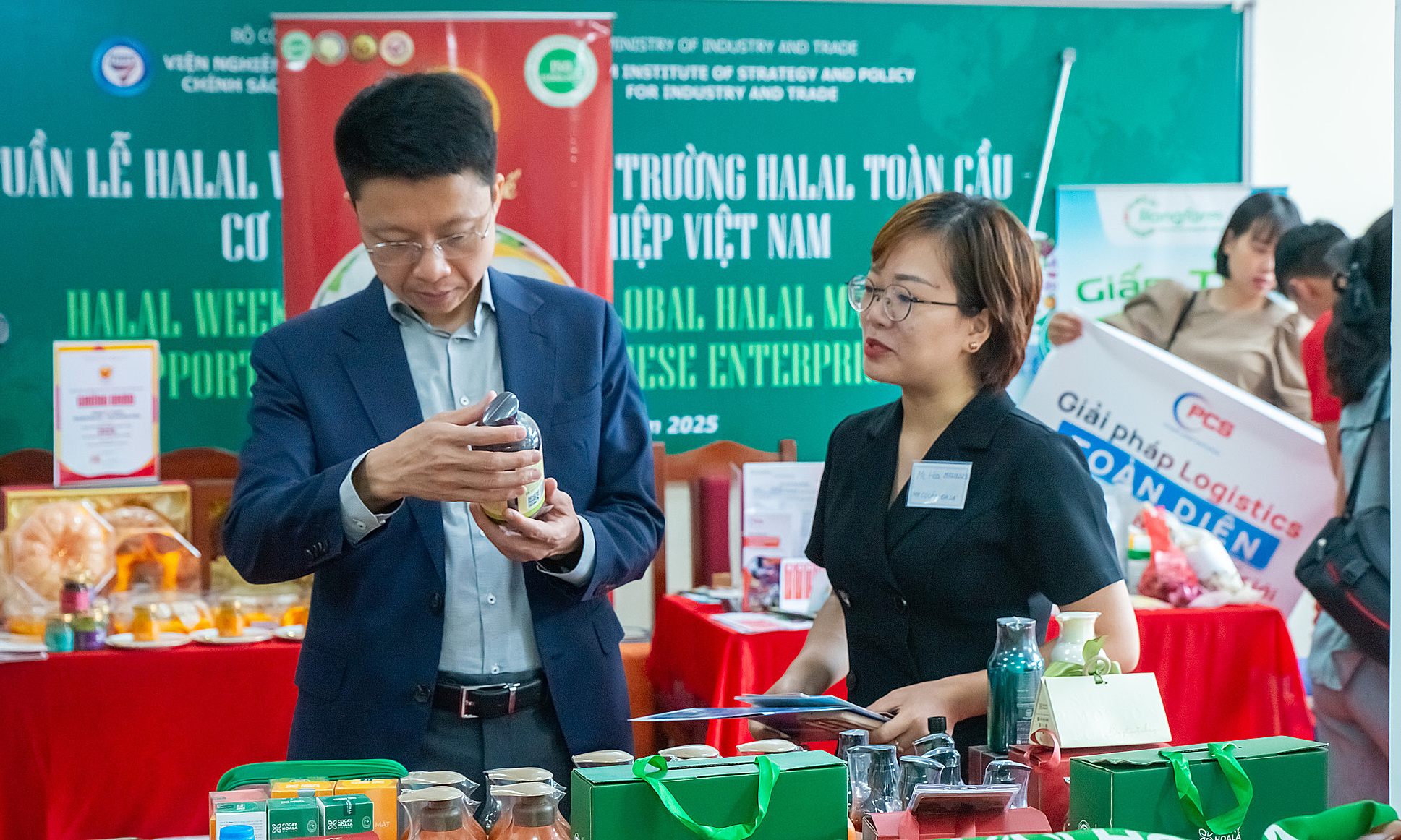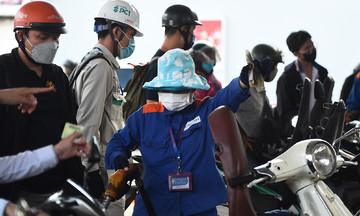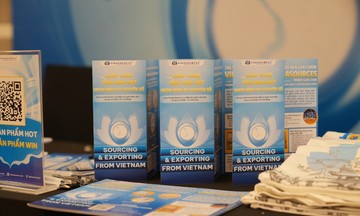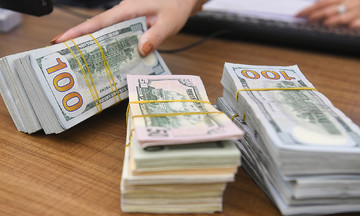This information was shared by Doctor Aemin Nasir, a lecturer at RMIT University, at the "Accessing the Global Halal Market - Opportunities for Vietnamese Businesses" seminar on 25/6.
The Halal industry encompasses products permitted for consumption under Islamic law, adhering to strict requirements for ingredients, processing, and transportation.
The UAE, Indonesia, and Malaysia are the largest importers of Vietnamese goods among the 57 member states of the Organisation of Islamic Cooperation (OIC). However, according to Doctor Aemin, Vietnam's exports to Muslim countries lack consumer food products and agricultural goods (coffee, fruits, vegetables, cashews, etc.), despite high demand for these items.
He cited data from market research firm Research and Markets, indicating that among Halal products, food is projected to experience the most significant growth, from USD 2.7 trillion in 2024 to nearly USD 6 trillion in 2033, more than doubling in 10 years.
Associate Professor Doctor Dinh Cong Hoang from the Institute for Southwest Asian and African Studies believes that any country or business that overlooks this segment will miss out on long-term growth opportunities.
 |
Some Halal-certified products displayed at the event on 25/6. Photo: Institute for Trade and Industry Policy and Strategy |
Some Halal-certified products displayed at the event on 25/6. Photo: Institute for Trade and Industry Policy and Strategy
Beyond exports, many Vietnamese businesses are also overlooking the domestic Muslim consumer base. Ba Thi Nguyet Thu, Chairwoman of Hanoi Xanh Cooperative, shared that the biggest challenge when hosting delegations from Muslim countries is finding suitable restaurants. "We often resort to vegetarian options," she said.
Mahmood Ur Rehman Janjua, Director of Vietnam - Pakistan Trading Company Limited, recounted his first visit to Yen Bai 20 years ago, where he could only drink water due to the lack of Halal food. Recognizing this significant gap in the Halal food and beverage (F&B) sector in Vietnam, he decided to invest in this market with the Nan n Kabab and Halal Banh Mi restaurant chains.
Currently, the global Halal market encompasses over 2 billion Muslims. The Halal economy is expected to reach USD 7.7 trillion in 2025 and surpass USD 10 trillion by 2030. The Muslim population is projected to reach nearly 3 billion by 2050, accounting for almost 30% of the global population. Spending on Halal products by Muslim countries is on the rise, expanding beyond nations with predominantly Muslim populations.
To tap into this potential market, two years ago, Vietnam developed a strategic direction, including a project to enhance international cooperation and develop the Halal industry by 2030. This initiative involved establishing the National Halal Certification Center and improving Halal regulations and standards.
However, entering the Halal market isn't easy for businesses. The cost of obtaining Halal certification is substantial, ranging from USD 2,000 to USD 5,000. If authorities detect any violations during subsequent inspections, the certification can be revoked.
According to Associate Professor Doctor Hoang, a major challenge for Vietnam is the lack of a comprehensive ecosystem for this industry, including production, services, and infrastructure. For instance, regarding logistics, the absence of dedicated storage and preservation areas for Halal goods can lead to cross-contamination with Haram products (products not compliant with Halal standards). Businesses also lack government support to develop and penetrate the Halal market more effectively.
Vietnam is lagging behind in the Halal market, with neighboring countries having been involved for several decades. Associate Professor Doctor Hoang suggests elevating the national project on the Halal industry to a national strategy, consolidating resources for both short-term and long-term development.
Experts also recommend establishing a Vietnamese Halal industry community. Doctor Aemin from RMIT emphasizes the need for increased awareness and education about Halal through traditional channels and social media platforms like TikTok and Instagram.
Thuy Truong












